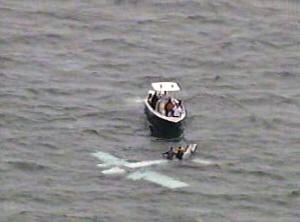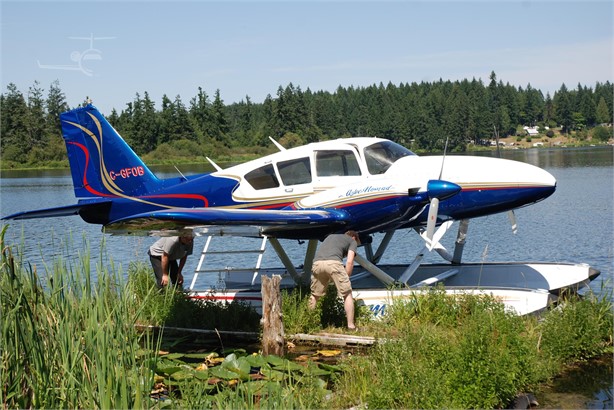Within the overriding category of total time, there are sub-categories. Pilot in Command time (PIC), night time, instrument time, multi-engine time, turbine time, cross country time. The aspiring professional pilot is always looking for ways to build that time in all categories.
In looking through my logbook, I noticed that I was becoming too busy working with students to fly every day with BS on my instrument training. That is not a bad thing, because the aspiring professional pilot is also looking for ways to build his bank account.
When the weather was not quite good enough to fly with my students, I could get a lesson or two in with BS. Another possibility was to go on a charter trip with Dave or McCowin and later with Jim. This was good to gain experience flying in various weather conditions and to build time in the log book.
Later in my career, after I had left Butler, some dude asked to look at my logbook and said I had too much instrument time, according to some percentage it was supposed to be relative to total time. Having been scrupulously honest about the times in my logbook, I immediately felt the sting of his insult. He immediately felt the sting of some of the attitude I developed when I was a drill sergeant. I asked him how much time he had spent flying out of an airport in western Pennsylvania. When he said none, I pointed out that this was not some candy ass area like California or Arizona, we had real weather up there and the weather was bad even on good days.
On one such lousy day, when it was too rainy and too windy to fly with my students, McCowin asked me if I wanted to fly on a trip with him. He was flying a Piper Aztec to Allegheny County to pick up a passenger, then to a small airport at Painesville, Ohio to wait, then return via the same route. He got to tell the passenger that there were two pilots and I would be able to log several hours and fly the light twin on the legs the passenger was not onboard.
I was flying on the way to AGC and I still have a visual memory of McCowin's skinny old hand trying to touch something on the panel, but bouncing all around because of the air turbulence. It was not comfortable.
We picked up the passenger and took off for Painesville, McCowin flying, me talking on the radio. We bounced and listened to rain pelting the wind screen. It had been raining in the region for days.
As we arrived there, the visibility was good, when we descended below the relatively high ceiling of clouds. It was still raining. There was one paved runway and it was roughly parallel to the shore of Lake Erie, which was not far away. The stiff wind was from the northwest and perpendicular to the paved runway. A direct crosswind. I can't remember the wind velocity, but it was high.
Wild Bill flew an approach to the west runway and when he got close to the ground, we were in a pretty good crab angle to the right to maintain our direction. He added power and leveled off above the runway, flying straight down it while judging the crosswind. Suddenly, he added power and started climbing. I thought the wind was steady enough, not gusting to try a landing, but who was I to argue with the Big Captain?
He made a left turn and leveled off. He pointed out a grass runway that was perpendicular to the paved runway and more into the wind. I did not have a good feeling about this, but who was I to argue with the Big Captain?
As we turned our base leg, we saw a power line ahead and Bill had to add power to level our descent a little to clear it. He turned final and pointed out a road to the right side of the big, wide grass runway. I assumed he intended to land on that. It looked like two long ruts filled with water to me, but who was I to argue with the Big Captain? I thought McCowin was going to demonstrate how to land an Aztec on water.
When we touched down, the muddy water washed up over the windscreen and it became dark as night in the cockpit. We decelerated quicker than anything I had ever experienced in an airplane. McCowin realized that we were getting bogged down in something that closely resembled a swamp and added power to try to keep the plane skimming along. We had a long way to go to get to pavement or solid ground.
I started hearing a WHAP! WHAP! WHAP! sound and realized the props were hitting something. I announced my realization in a loud voice. I didn't know if he would continue or stop, but finally felt compelled to tell him what I was realizing. I probably should have started doing that sooner.
He pulled the power back and we settled into the muck. The windshield cleared a little and we began to see what we had gotten ourselves into. The rain was washing the mud off the windows and we saw some guys driving an old open Jeep with big tires out to where we were sitting. We got out and started walking around in muddy crap over our ankles.
Always the professional, McCowin got the guys in the Jeep to drive close to the wing, so our passenger could get in without walking in the muck. The guys took him to the little terminal building, where he met his people. Then the Jeep came back to pick us up. The ends of the prop blades were bent as much as 90 degrees and about 6 to 8 inches from the tips. The funny thing was that the tips had been bent forward, from the force of trying to pull us through the swamp.
 |
| Blub, Blub, Blub!! |
When we got into the building, we found some coffee and went to a waiting room. Bill looked at me and said, "Well, you just saw the Ol' Captain f%#& up." I asked him what happened there and he said when he saw that road, he thought it was like the old road that crossed our grass runway at Butler Graham. It had been paved at one time, but was breaking up over the years. He thought this one was like that. I was in my 20s and he was about 30 years older. My eyes saw exactly what it was and assumed he saw the same thing.
This was my first practical lesson in what the airlines call CRM, Crew Resource Management. Briefly, this means that captains should not in any way discourage input from other crew members and other crew members should speak up when they are aware of a potential problem that the captain may not be aware of.
We called back to our office and they sent Jim Weber up with another Aztec to pick us all up when our passenger had completed his business. The weather was improving rapidly.



No comments:
Post a Comment